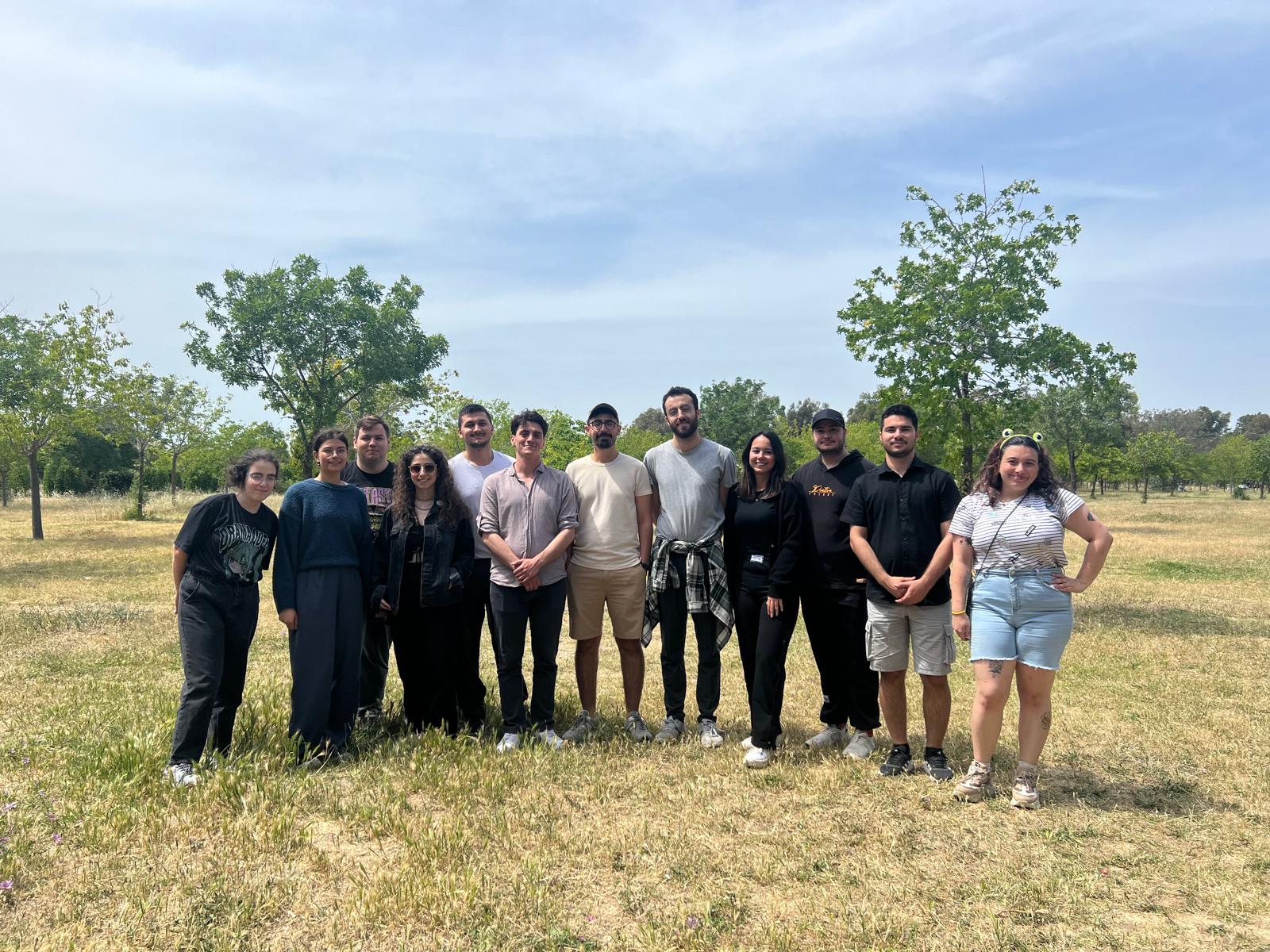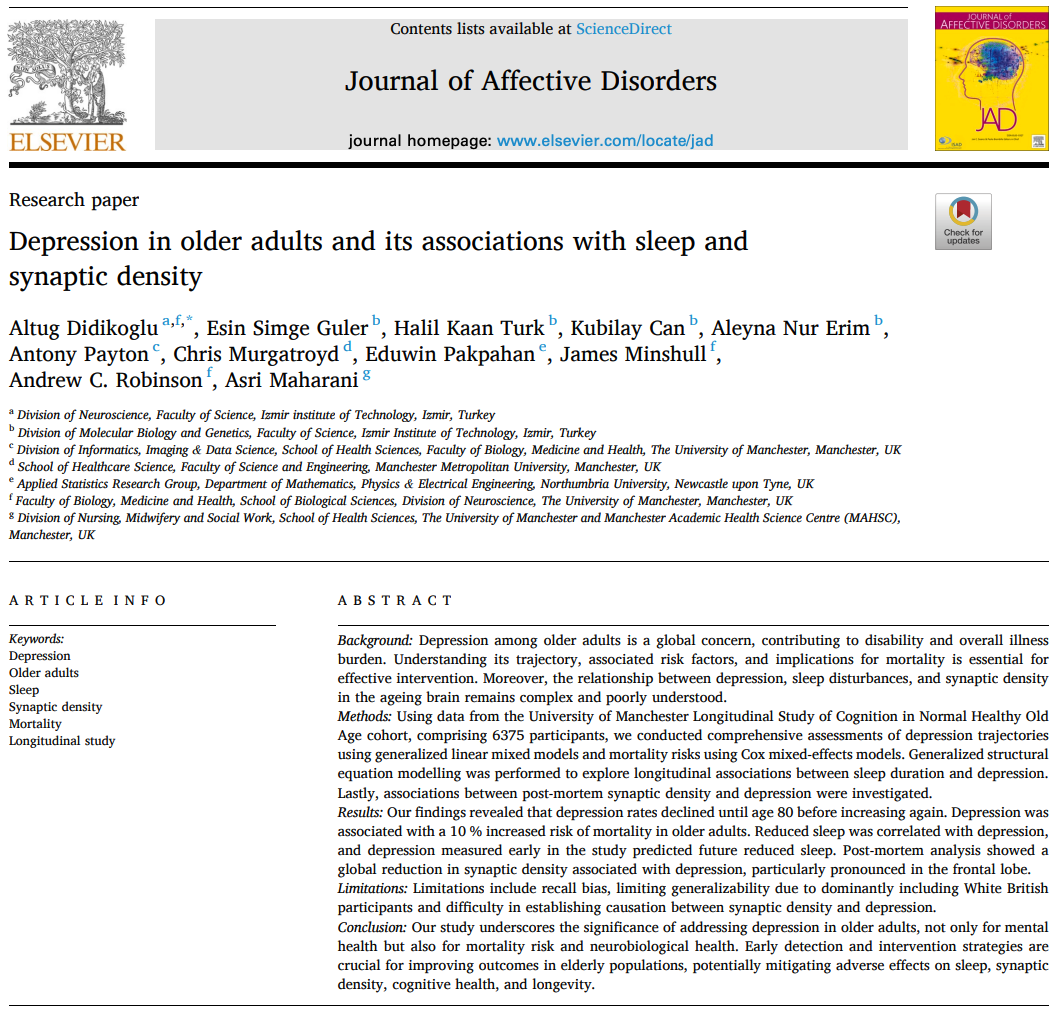Chronobiology Lab Summer Picnic
June 15, 2024
Our Chronobiology Lab team recently had our first picnic together to build better team spirit. It was a great chance to connect outside the lab and strengthen our bonds. Although we know that some of our team members might be moving on to new opportunities soon, the picnic served as a reminder of how meaningful our time together is. Looking ahead, we plan to make this picnic an annual tradition, a way to celebrate not only our scientific achievements but also the friendships and connections that make working in the Chronobiology Lab so rewarding.

Our First Lab Paper
August 30, 2024
Depression in Older Adults and Its Associations with Sleep and Synaptic Density
Depression in older adults is a pressing global concern, significantly contributing to disability and the overall illness burden. Our recent study, titled “Depression in Older Adults and Its Associations with Sleep and Synaptic Density,” published in the Journal of Affective Disorders, delves into the intricate relationships between depression, sleep patterns, and synaptic density in the aging brain. You can access the full paper here.
Key Highlights
U-Shaped Depression Trajectories: Depression rates in older adults exhibit a U-shaped pattern, with rates declining until age 80 before rising again.
Increased Mortality Risk: Older individuals with depression face a 10% increased risk of mortality.
Reduction in Synaptic Density: Depression correlates with a global reduction in synaptic density, particularly evident in the frontal lobe.
Our study underscores the significance of addressing depression in older adults, not only for mental health but also for mortality risk and neurobiological health. Early detection and intervention strategies are crucial forimproving outcomes in elderly populations, potentially mitigating adverse effects on sleep, synaptic density, cognitive health, and longevity.
This research was conducted in collaboration with the Manchester Brain Bank at The University of Manchester, with contributions from three of our undergraduate lab members from the Izmir Institute of Technology.
